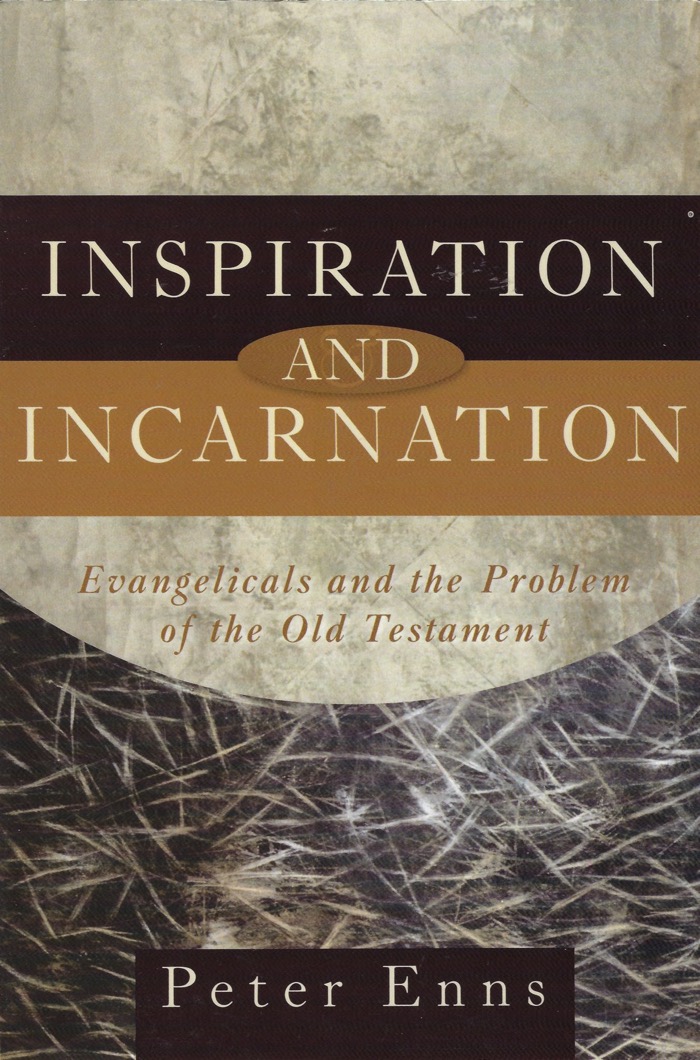Inspiration and Incarnation: Evangelicals and the Problem of the Old Testament
Reviewed date: 2009 Jul 29
208 pages
It's been a few months since I read Inspiration and Incarnation, but I've been putting off writing this review. Interpreting Scripture is a complex topic.
What do we do with the contradictions and inconsistencies in the Bible? Enns suggests that we can do three things.
- Ignore them
- Claim they don't exist, and come up with ways to explain them away
- Acknowledge them, and--understanding the literary tradition of the Scriptures--recognize that they don't impact the accuracy and reliability of the Scriptures.
What sort of contradictions? How about this one, right in the Ten Commandments themselves. Exodus 20:11 says:
"For in six days the LORD made the heavens and the earth, the sea, and all that is in them, but he rested on the seventh day. Therefore the LORD blessed the Sabbath day and made it holy."
In contrast, Deuteronomy 5:15 says:
"Remember that you were slaves in Egypt and that the LORD your God brought you out of there with a mighty hand and an outstretched arm. Therefore the LORD your God has commanded you to observe the Sabbath day."
So which is it? Is the Sabbath an observance of God's creative power in making the world, or a celebration of Israel's deliverance from Egypt? It may not seem like a big deal, but if the Bible can't even be consistent about the Ten Commandments, that should give one pause to think.
Enns suggests that we must look at the historical context and figure out what the passage meant to those at the time it was written. Our perspectives on the Scriptures don't matter so much. Exodus and Deuteronomy were written for different audiences and different purposes, and so the different focus of the Ten Commandments is not a problem. Both are correct. Sure they contradict each other, but that's not because one is wrong. Both are true, from a certain perspective.
Later, Enns deals with the problem of how the New Testament writers handle the Old Testament scriptures. By all modern interpretive standards, the apostles' misuse of the Scriptures is blasphemous. They rip passages out of context, misquote Scriptures, and read brand new meanings and ideas into passages. That's the kind of re-interpretation of Scripture that would get someone marked as a heretic today. What gives?
Enns says that the traditional explanation--that the apostles were given special permission to take liberties with the OT that we are not permitted--doesn't fly. We should emulate the NT writers by also seeking to interpret the OT in light of the incarnation of Jesus Christ. We too should read new meaning into old Scriptures by viewing it in light of Christ. Further, Enns suggests we go one step further: we should read new meaning into the Old and New Testaments by interpreting them in light of the Church.
I'm not sure I completely agree with Enns about interpreting the NT in light of the church age. How do we guard against heresy? But his suggestion is the best I've heard. I've heard the evangelical answer: Oh, the apostles can do that kind of wild reinterpretation because they were specifically led by the Holy Spirit. We're not led like that anymore, so we can't take such liberties. I don't buy it. The whole Protestant idea is that the individual believer interprets the Scriptures with the illumination of the Holy Spirit--as opposed to the Catholic idea that the Church interprets the Scriptures. So why shouldn't we be free to interpret in new ways, relying on the guidance of the Holy Spirit?
